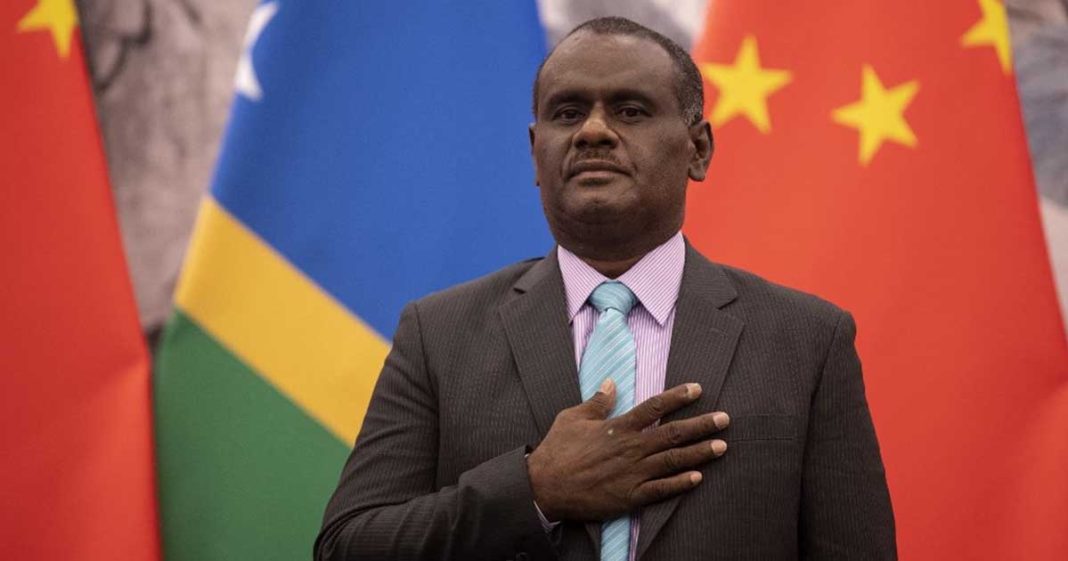The Solomon Islands said Tuesday it had objected to the first draft of a US-Pacific partnership declaration because it was “not comfortable” with some indirect references to China.
The Solomons’ foreign minister, Jeremiah Manele, was quizzed by reporters in New Zealand about his country’s reported qualms over the joint statement, signed in Washington last week.
“In the initial draft there were some references that we were not comfortable with,” the foreign minister said.
These “put us in a position that we have to choose sides and we don’t want to be placed in a position that we have to choose sides”, Manele said.
Asked if those references were to China, he replied: “Indirectly.”
Solomon Islands FM: “There were some references that put us in a position that we have to choose sides, and we don't want to be placed in any position that we have to choose sides.”https://t.co/s3G0EsRmru
— Derek J. Grossman (@DerekJGrossman) October 4, 2022
Manele said the United States and 14 Pacific islands meeting in Washington had then found “common ground” in negotiations, allowing Solomon Islands to sign the final declaration.
The United States has been the key player in the South Pacific since its World War II victory.
But in recent years China has asserted itself strongly through investment, police training and, most controversially, a security pact with Solomon Islands.
Countering Beijing’s growing clout in the region, US President Joe Biden last week announced $810 million in new funding for the Pacific islands and signed the joint declaration with them pledging a closer US-Pacific partnership.
Read more: US hosts red carpet to Pacific Islands amid rising Chinese influence
Solomon Islands Prime Minister Manasseh Sogavare told AFP in Washington at the time that the negotiations had addressed his concerns “in a positive way”.
Manele, speaking in Wellington after meeting with his New Zealand counterpart Nanaia Mahuta, said both China and the United States were welcome in the Pacific.
The foreign minister reiterated the Solomons’ position that its security pact with Beijing, signed in April, would not lead to China establishing a military presence in the archipelago.
“The Indo-Pacific… should not be seen as a region of confrontation, of conflict, of war,” Manele said.
Read more: Pacific islands become new battle zone between China & US
“There is no provision for a military base in that agreement. We welcome the US re-engagement with the Pacific and we look forward to working with all our partners.”
AFP with additional input by GVS News Desk














